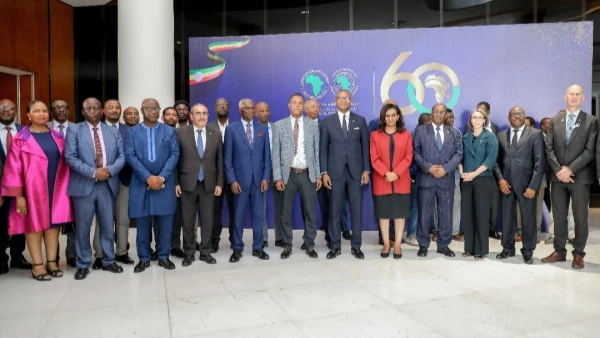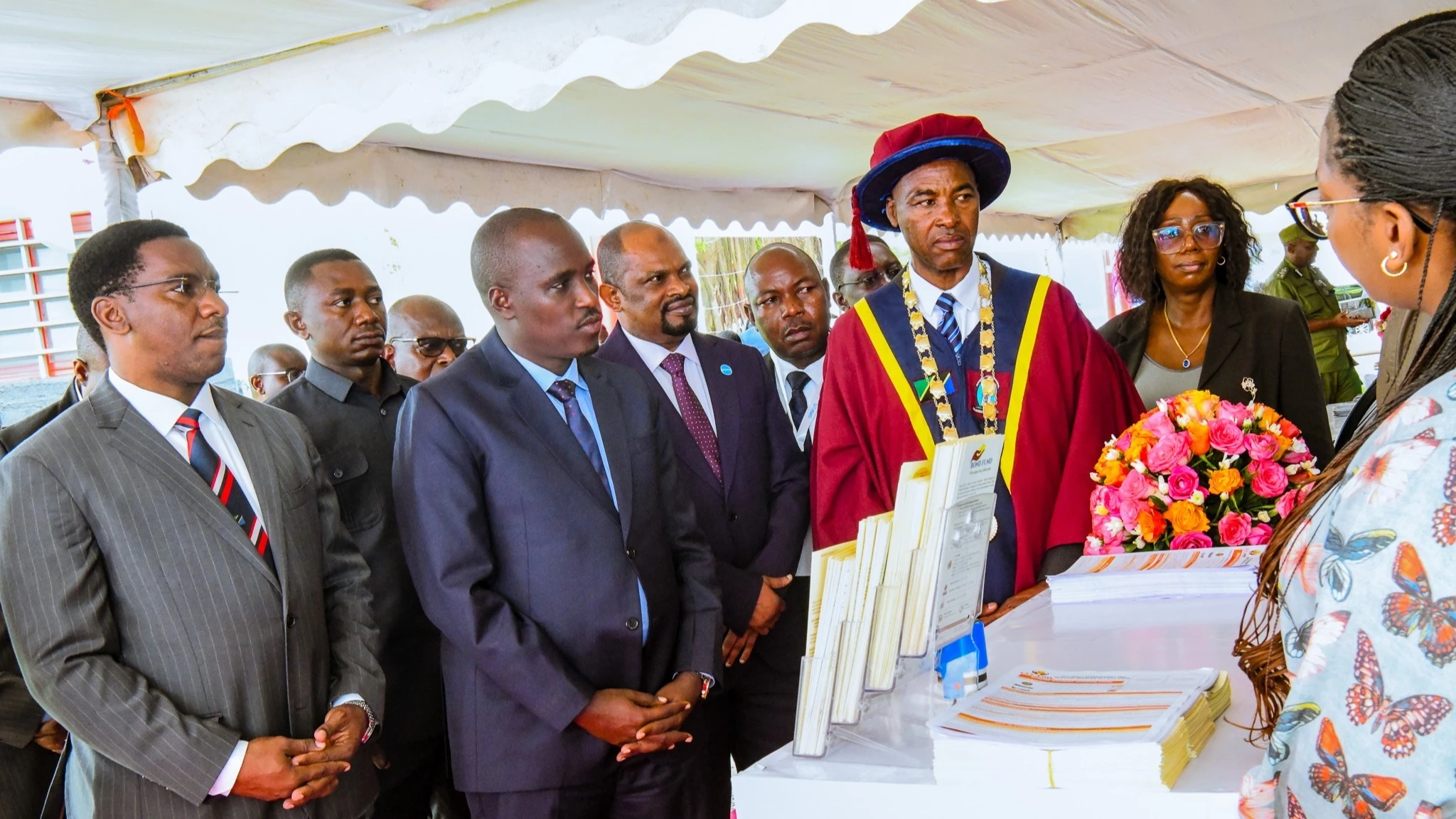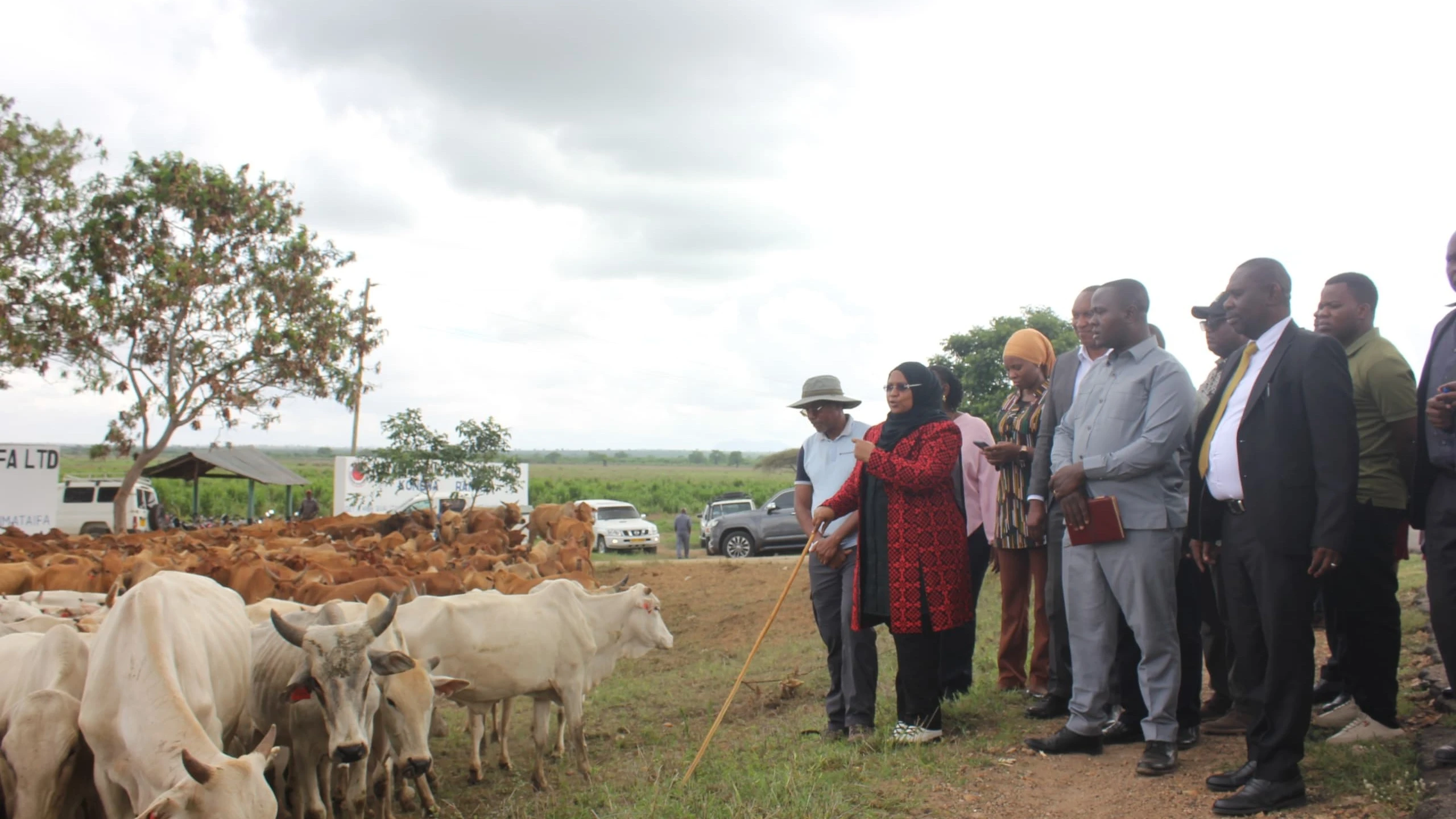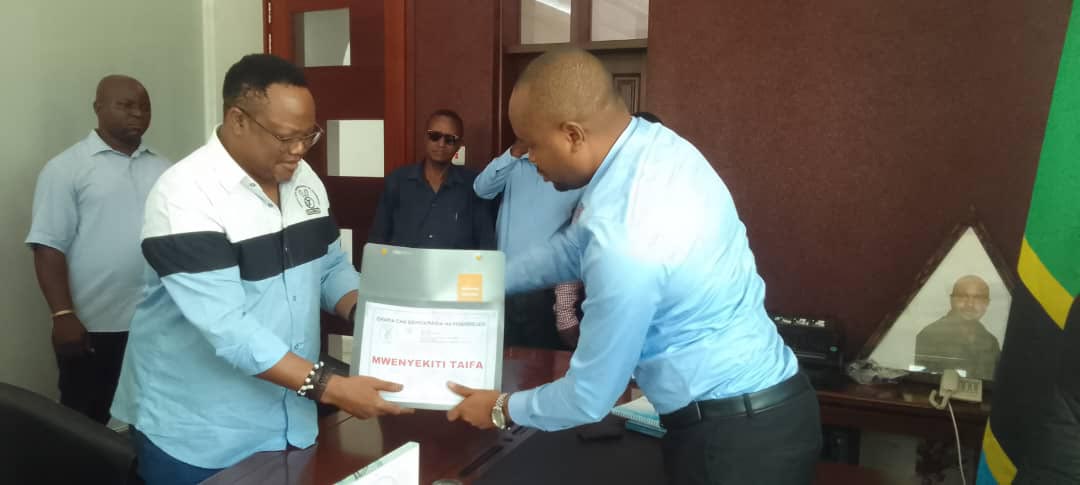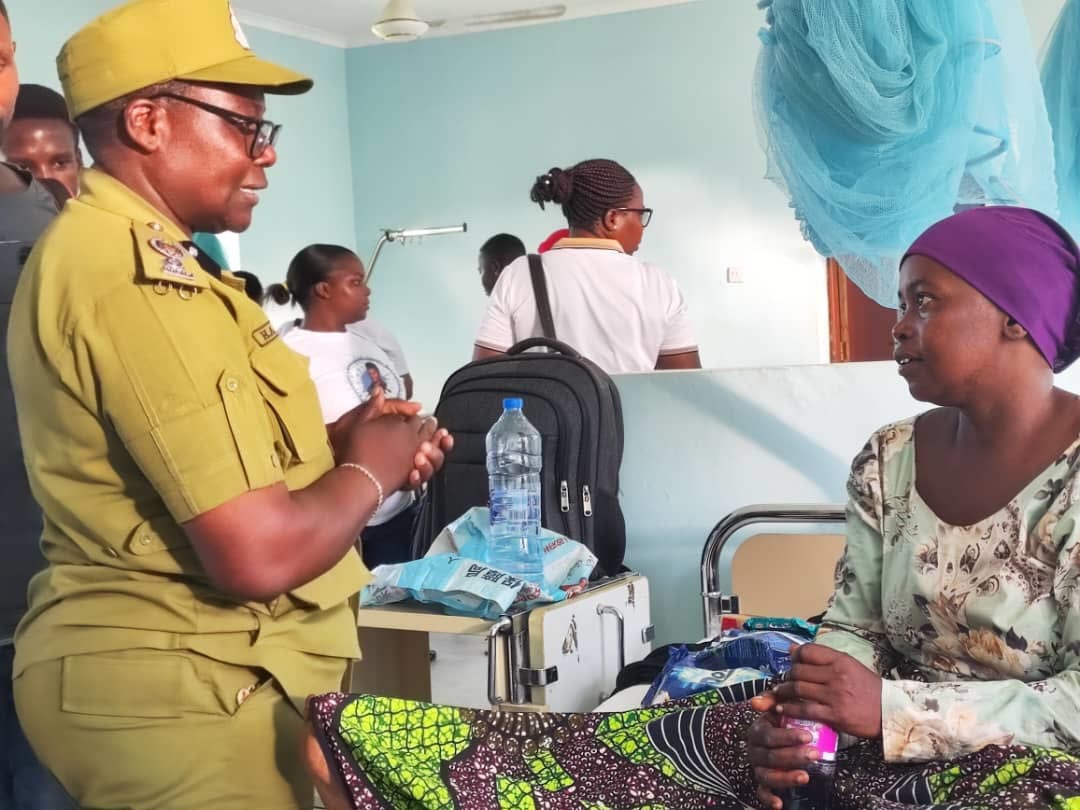Tanzania's struggle for universal health coverage at international UHC day 2024
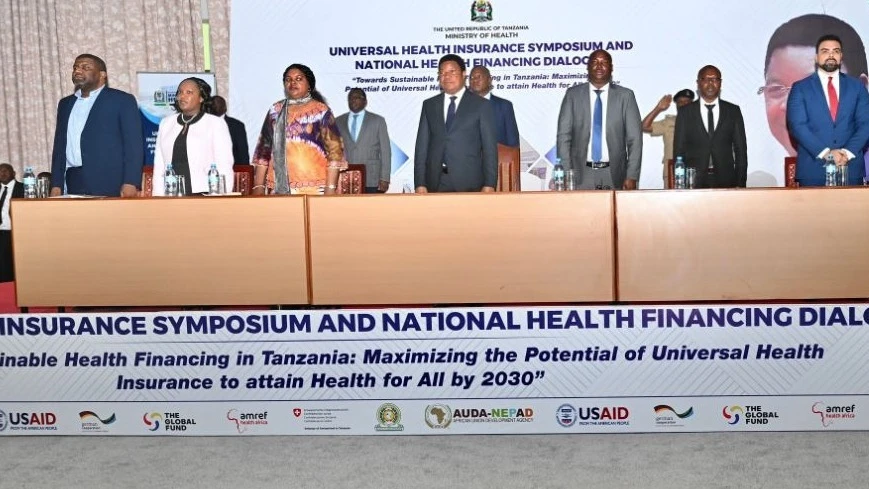
ON December 12, 2024, the world marked the International Universal Health Coverage (UHC) Day—a moment to reflect on how far we have come in ensuring that everyone, everywhere can access healthcare they need without falling into financial ruin.
These milestones serve as a stark reminder that, despite progress, the journey toward true health equity is far from complete. With billions still excluded from essential services, the need for urgent action has never been clearer. It's a call to accelerate efforts and transform health systems to make UHC a reality for all, not just a promise.
This year’s theme highlights the stark reality that despite some advances, the global push for UHC has largely stalled, with 4.5 billion people still lacking sufficient coverage.
The situation is even direr in low- and middle-income countries, where the cost of healthcare is pushing up to 1.3 billion people further into poverty.
For nations like Tanzania, this challenge is particularly pressing. The country has made considerable strides toward UHC, but deep-rooted structural and systemic issues continue to impede progress.
The government has enacted the landmark Universal Health Insurance Act, mandating health insurance coverage for all residents to close the coverage gap.
However, with only 15 percent of the population in mainland Tanzania covered by any form of health insurance, and virtually none in Zanzibar, it’s clear that there’s a long road ahead.
Health financing remains one of the most significant bottlenecks in Tanzania’s journey towards UHC. The country faces an increasing demand for healthcare services, especially with a rapidly growing population.
Despite the government’s commitment to reforming the health system, inefficient allocation of resources and limited capacity to manage finances continue to hinder its ability to deliver on the promise of universal coverage.
The Controller and Auditor General’s report highlights these challenges, pointing to the poor management of funds allocated to health programs and the lack of accountability in health insurance schemes. While the government has allocated more resources to health since the pandemic, these efforts have not been enough to bridge the gap.
The introduction of the Community Health Fund (CHF) in Tanzania, supported by Switzerland’s Health Promotion and System Strengthening (HPSS) project, offers a glimmer of hope.
By the end of the project in 2023, about 5 percent of the population was enrolled in the CHF, a community-based insurance scheme aimed at reaching the rural and informal sectors.
The program has made significant progress in extending coverage to vulnerable groups, but it remains a drop in the ocean.
The rural population, in particular, remains underserved, and the CHF’s success is limited by weak administrative structures and insufficient funding.
Despite these hurdles, the Tanzanian government is pushing forward with its commitment to universal health insurance. Both mainland Tanzania and Zanzibar have fast-tracked the enactment of a mandatory health insurance law, yet operationalization is at different stages, with both regions struggling with legislative and institutional challenges.
For example, the health insurance fund’s management information system is still not fully integrated into the health system, limiting its potential to reach the broader population. Moreover, the slow pace of digitization in the health sector hampers efforts to enhance efficiency, responsiveness, and coverage.
Digital health technologies could be a game-changer for Tanzania. The government recognizes the transformative potential of digital solutions to improve service delivery, manage healthcare data, and streamline the insurance process. However, the slow integration of digital innovations into the healthcare system remains a major challenge.
Weak governance and poor coordination between stakeholders have stalled efforts to fully leverage digital tools in healthcare. The lack of infrastructure and capacity to manage these technologies, particularly in rural areas, further exacerbates the problem.
The Tanzanian case is just one example of the broader challenges facing national health insurance schemes in low- and middle-income countries.
Globally, UHC is seen as a critical enabler of the Sustainable Development Goals (SDGs), but the dream of universal health coverage remains elusive for millions. In countries like Tanzania, the gap between policy intentions and reality is wide.
While the government has demonstrated political will and made significant investments in primary healthcare, the resources available are insufficient to meet the needs of the entire population. Moreover, the political economy of healthcare financing remains deeply entrenched in inefficiencies, which undermine the country’s efforts to move towards UHC.
This challenge is not unique to Tanzania. Across Sub-Saharan Africa, millions of people are excluded from essential health services, with catastrophic health expenditures pushing many further into poverty.
The problem is compounded by economic constraints, rising inflation, and public debt, which limit governments' ability to invest in healthcare infrastructure. In many countries, the informal sector, which constitutes the majority of the workforce, remains excluded from health insurance schemes, making it even more difficult to achieve universal coverage.
The push for UHC is not just about expanding coverage; it’s also about ensuring that the quality of care meets the needs of the population. In Tanzania, the health system has made improvements in primary healthcare services by increasing the number of health facilities, healthcare workers, and medical equipment.
These investments have led to better health outcomes, but inefficiencies in the system persist. For example, health facilities are often underfunded and lack basic equipment and supplies, which undermines the quality of care provided.
The government’s focus on prevention, particularly through vaccinations and health education programs, has yielded positive results, but more needs to be done to strengthen the entire healthcare system.
A key element in Tanzania’s strategy for UHC is health equity – ensuring that all people, regardless of their income or social status, can access quality care. This requires addressing the social determinants of health, such as access to clean water, sanitation, education, and nutrition.
Without addressing these factors, UHC will remain out of reach for many people, particularly those in rural and marginalized communities.
Achieving UHC 2.0 – a more inclusive, sustainable, and equitable model of healthcare – will require innovative financing solutions.
One promising approach is the introduction of mandatory contributions to health insurance schemes, which can help build a more sustainable funding base for UHC.
The use of digital health technologies can also play a crucial role in expanding access to healthcare services, particularly in remote areas where traditional healthcare infrastructure is lacking. Nevertheless, these solutions must be carefully tailored to the context of each country, taking into account cultural, economic, and political factors.
Tanzania’s efforts to reform its healthcare system are a step in the right direction, but the journey is far from over. To truly achieve UHC, the government must address the fundamental challenges of health financing, digital integration, and equity.
This will require a coordinated effort across sectors, from government and the private sector to civil society and development partners. The key to success lies in building a health system that is not only financially sustainable but also responsive to the needs of the people it serves.
The world is watching as countries like Tanzania attempt to build a more inclusive and equitable healthcare system.
The progress made so far is commendable, but the task ahead remains monumental. As we mark International UHC Day, it’s clear that the road to universal health coverage is long and fraught with challenges.
But with sustained effort, innovative financing, and a commitment to health equity, UHC can become a reality for all.
Tanzania’s journey is a reminder that while progress has being made; much work remains to ensure that no one is left behind in the pursuit of health and well-being for all.
Top Headlines
© 2024 IPPMEDIA.COM. ALL RIGHTS RESERVED













